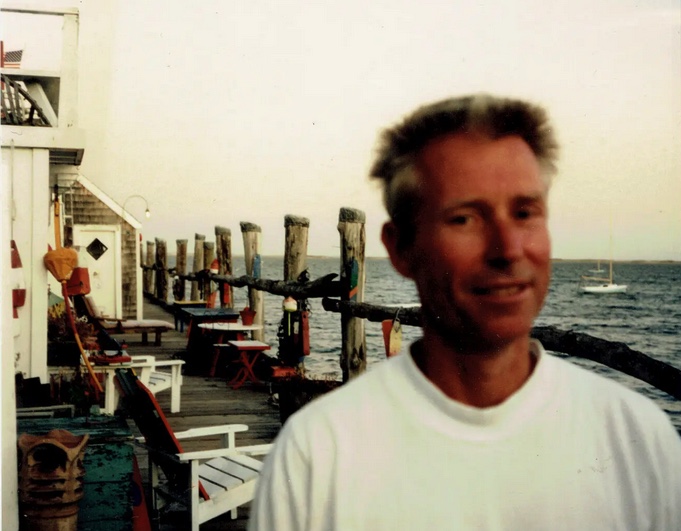|
presents THIS DAY IN GAY HISTORY based on: The White Crane Institute's 'Gay Wisdom', Gay Birthdays, Gay For Today, Famous GLBT, glbt-Gay Encylopedia, Today in Gay History, Wikipedia, and more …
Collected by Ted July 4 [{(o)}]|[{(o)}]|[{(o)}]|[{(o)}]| [{(o)}]|[{(o)}]
1776 – Happy Birthday, American neighbours, but please keep your politics at home!.
1826 – Stephen Foster, American composer, born (d.1864); Like Yankee Doodle, the composer Stephen Foster was born on the Fourth of July. His list of sentimental down-home hits—"Oh Susanna," "Old Folks At Home," "Beautiful Dreamer"," Jeannie with The Light Brown Hair," and "Old Black Joe"—make the jingoistic George M. Cohan appear strident and un-American by comparison. 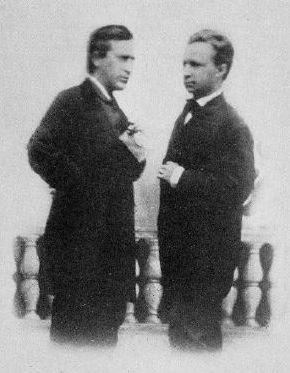 Foster (L) with George Cooper Flag-waving or no, what made fireworks go off for this star-spangled tunesmith was another composer - George Cooper, a handsome young man who is best known today for his "Sweet Genevieve," a song perhaps best sung as a barbershop quartet, when drunk. So taken was Foster with sweet George Cooper that he abandoned his wife and family to run away with him. The two lived and worked together in the last 12 months of Foster's life. Living in a cheap rooming house in the Bowery, Foster, already in weak condition from a bad cold, died a few days after a gash, incurred in a fall, became infected. Cooper describes finding Foster after the fall: Steve never wore any night clothes and he lay there on the floor naked and suffering horribly. He had wonderful big brown eyes and they looked up at me with an appeal I can never forget. He whispered, 'I'm done for', and begged for a drink...We put his clothes on him and took him to the hospital. In addition to the cut on his throat and bruise on his head, he was suffering from a bad burn on his thigh, caused by the overturning of a spirit lamp used to boil water. This had happened several days before and he had said nothing about it. All the time we were caring for him, he seemed terribly weak and his eyelids kept fluttering."
1844 – American sculptor Mary Edmonia Lewis lived most of her life in Rome (d.1907), where she was a member of a lesbian circle of American expatriates and artists . Many of the details of her life remain elusive. The only daughter of an Ojibwa (Chippewa) Indian mother and an African-American father, Lewis was born in upstate New York, probably on July 4 or July 14. Orphaned, she was raised by the Mississauga band of her mother's tribe. Financed by her brother Samuel, a prospector in California, Lewis became one of the first African-American female students at Oberlin College in Ohio. There she studied drawing, demonstrating a clear talent as a teenager. Signing her first drawing simply "Edmonia Lewis," she caused her proper name "Mary" to fall out of use. Her years at Oberlin were marred by a bizarre incident in which Lewis was accused of poisoning her two white housemates with an aphrodisiac. Although charges against her were eventually dismissed, she was taken by a lynch mob and badly beaten. Some historians believe that the women, who were out on dates with male companions when the poison took effect, had been targeted because of romantic jealousy. Forced to leave Oberlin in 1863, Lewis went to Boston to study. In Boston, she also met and befriended lesbian sculptors Anne Whitney (1821-1915) and Harriet Hosmer (1830-1908). Lewis was self-taught as a sculptor. Her earliest works were clay and plaster portraits of well-known abolitionists. Eventually Lewis worked in a Neoclassical style, deriving much of her later subject matter from historical sources. She moved to Rome in 1865, where she apparently lived for the rest of her life. Lewis's studio near the Spanish Steps was a popular destination for tourists and a gathering place for other expatriate artists and intellectuals, many of them women. While there has never been any explicit "proof" of Lewis' homosexuality, her inclusion in a lesbian circle in Rome has contributed to the speculation. Furthermore, Lewis wore so-called "mannish" attire, somewhat evident in the only known photographic portraits of her, made on a visit to Chicago. Lewis's monumental masterpiece, The Death of Cleopatra, was exhibited at the Centennial Exposition in 1876 in Philadelphia and in Chicago in 1878 and then, unsold, was placed into storage. From there it disappeared: its remarkable rediscovery paralleled the rediscovery of the artist herself in the late twentieth century. Not long after Lewis stored the two-ton marble, it turned up on display in a Chicago saloon and eventually ended up at a racetrack as a grave marker for a racehorse named Cleopatra. When the racetrack became a postal service facility in the 1970s, the sculpture was put into a storage yard, where it languished, exposed to the elements, until a fire inspector enlisted his son's Boy Scout troop to "restore" it with cleaning solutions and paint. Alerted by a newspaper article, the Historical Society of Forest Park, Illinois claimed the sculpture and put out inquiries that caught the attention of Lewis biographer Marilyn Richardson. The sculpture was finally turned over to and restored by the Smithsonian Institution. The rediscovery of The Death of Cleopatra is all the more important because precious few of Lewis's works survive. For years, the year of Edmonia Lewis' death was speculated to be 1911 in Rome. However, recent scholarship reveals that she lived in Hammersmith area of London, England before her death on September 17, 1907 in the Hammersmith Borough Infirmary
1855 – On this day in 1855, Walt Whitman published the first edition of Leaves of Grass. The first edition consisted of 12 poems, and was published anonymously; Whitman set much of the type himself, and paid for its printing. Over his lifetime, he published eight more editions, adding poems each time; there were 122 new poems in the third edition alone (1860-61), and the final "death-bed edition," published in 1891, contained almost 400. The first edition received several glowing — and anonymous — reviews in New York newspapers. Most of them were written by Whitman himself. The praise was unstinting: "An American bard at last!" One legitimate mention by popular columnist Fanny Fern called the collection daring and fresh. Emerson felt it was "the most extraordinary piece of wit and wisdom America has yet contributed." This wasn't a universal opinion, however; many called it filth, and poet John Greenleaf Whittier threw his copy into the fire.
1941 – Walt Curtis is a poet, novelist and painter from Portland, Oregon. His autobiographical work, Mala Noche (1977), became the basis for Gus Van Sant's 1985 film of the same name. Mala Noche (also known as Bad Night) is a American drama film based on Walt Curtis' autobiographical novel. It marked Gus Van Sant's directorial film debut, and stars Tim Streeter, Doug Cooeyate, Ray Monge, and Nyla McCarthy. The film was shot on 16 mm in black-and-white in Portland, Oregon. 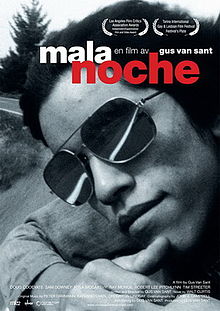 The story follows relationship between Walt, a gay store clerk, and two younger Mexican boys, Johnny and Roberto Pepper. Walt convinces them to come over for dinner, but Johnny and Pepper have to return to their cheap hotel because another friend is locked out. Walt makes his first pass at Johnny by offering him $15 to sleep with him. Johnny refuses and runs to his hotel room, leaving Roberto locked out with nowhere to spend the night but Walt's. Settling for second best, Walt lies down next to Pepper and allows him on top for sex. However, he does not give up on trying to win over Johnny. Walt Curtis was the co-founder of the Oregon Cultural Heritage Commission. He has hosted the poetry radio show "Talking Earth" at KBOO since 1971. He has written about and championed Oregon literary figures such as Joaquin Miller, Hazel Hall, Frances Fuller Victor, and many others. Portland Mayor Sam Adams declared July 1–7, 2010 "Walt Curtis Week."
1941 – Winston Johnson (d.2021) was an Atlanta LGBTQ activist who helped build a vital alliance between the LGBTQ and civil rights movements through his friendship with Coretta Scott King. Winston Johnson was born in Valdosta, Ga. He grew up in Greenville, Fla., and later dropped out of the University of Florida after fighting depression and fearing the Johns Committee, which persecuted gay people across the state in the 1950s. Johnson joined the U.S. Naval Reserve in 1963 and met his longtime partner Leon Allen the following year in Jacksonville, Fla. The couple moved to Atlanta in 1967 in the hopes of finding a more gay-friendly place to live. They spent the next 46 years together until Allen’s death. "The most important role in my life," Johnson wrote recently, "was caring for Leon the last 10 years of his life. I felt more alive at that time because I knew how important my efforts were for him. He died in 2006 and marriage equality came to Georgia in 2015." Johnson’s relationship formed the foundation of his activism. In Atlanta, Johnson landed a customer service job with Eastern Airlines. It’s in this work, and later with Carey Limousines, that Johnson made connections with prominent business leaders, politicians and celebrities. In the 1970s, it was a time of widespread homophobia in the country and especially in the South. Allen and Johnson remained in the closet because LGBTQ+ folks could lose their jobs, housing, and insurance for being out. He met Coretta Scott King in April 1968 on the day after Martin Luther King, Jr. was assassinated. They became fast friends, but Johnson didn’t tell her about his relationship with Allen until 1986 after the U.S. Supreme Court upheld Georgia’s anti-sodomy law. Johnson later asked King to speak at a Human Rights Campaign dinner in New York City. She quickly agreed and it was King’s first public support of LGBTQ rights. Inspired by their experiences in New York City, Johnson and Allen joined twelve other local activists to create a steering committee to organize an HRC Fund event in Atlanta. On May 21, 1988, the first Human Rights Campaign Fund Southeastern Gala occurred downtown at the Marriott Marquis. The committee hoped to attract 200 attendees but that night 660 folks showed up. Johnson became more open about his sexual orientation in talks with other civil rights leaders over the years, including the late U.S. Rep. John Lewis, Julian Bond and Xernona Clayton. Johnson also befriended then-President Jimmy Carter through his work at Eastern. Carter invited Johnson to a 1978 White House State Dinner, which he attended alone out of fear of exposing his relationship with Allen. Johnson had a number of conversations with Carter about life as a gay man after he left office. Carter spoke out in favor of gay marriage in 2012. Johnson was diagnosed with prostate cancer in 1997 and then bladder cancer in 2019. He took on a new form of activism in his later years – decrying that Georgia has no "right to die" laws. Johnson died on May 11, 2021.
1941 – James McCourt is an American writer and novelist., known for his study of gay life Queer Street. McCourt is openly gay. His life partner since 1964 is novelist Vincent Virga; they met in graduate school at Yale. Virga wrote of their early life together:
Enter Jimmy at Yale. When we met, I had never been to a gay bar. I had never tricked. When he told me late Spring 1965 that he was in love, I assumed it was with one of the other guys in our class. I can still see us crossing Chapel Street in New Haven going to my apartment after class having this conversation: Is it Bill? Is it Gary? Who is it? "It's you," he said. I was stunned …
When Jimmy told me he loved me and I began to look at him in a different way. And then one Saturday morning when my roommate was away, Jimmy boldly slipped into my bed… McCourt is best known for his extravagant 1975 novel Mawrdew Czgowchwz, about a fictional opera diva, and his 2003 nonfiction book Queer Street, about gay life in New York City after World War II. His latest novel, Now Voyagers (2007), is the first in a series of projected sequels to Mawrdew Czgowchwz.
1947 – Jacques Morali aka Don Prince, (d.1991) singer, composer, songwriter, arranger, and producer of Pop and Soundtracks, is born in Casablanca, Morocco. Formerly a salesman at record shop in Orly Airport, he started out in the music industry as a composer for the Parisian variety/burlesque club Crazy Horse, and also as a solo act. He was then hired at age 24 as an A&R for Polydor. In 1975, he met future business partner Henri Belolo (then an independent label owner and music publisher) whilst searching for a song to produce. It was on the East Coast of the United States (after Morali pitched the idea of releasing "Brazil" as a disco record) that Belolo agreed to sponsor a long-lasting residency for Morali at Sigma Sound Studios. Working together and with American lyricists & conductors Horace Ott, Phil Hurtt, and Beauris Whitehead (and later Producer/Arranger Fred Zarr & Lyricist Bruce Vilanch), they left an indelible mark on American & worldwide culture with their work creating & producing acts such as the Village People, The Ritchie Family, Eartha Kitt, Patrick Juvet, Cher, Diva, Dennis Parker (whom Morali dated), and Pia Zadora. 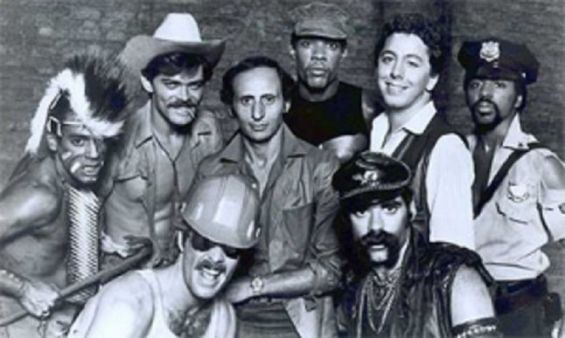 Morali and Belolo (centre) with the Village People Jacques was one half of Can't Stop Productions, Inc., alongside Belolo, and at some point claimed to have made US$8,000,000 a year in the 70s. Between 1974 and 1982, he recorded at least 65 releases, and currently possesses around 400 credits with ASCAP, BMI, and SACEM. Nonetheless, following the "disco backlash" of the early-80s, he would eventually find success elusive. A Homosexual, he was diagnosed with HIV in the mid-80s and died of AIDS in Paris on November 15, 1991. He is the brother of Serge Morali, who has managed his copyrights since 1991.
1953 – Charlie Murphy (d.2016) was an American singer-songwriter. Growing up during the civil rights and anti-war movements, Charlie devoted his life to social change. After college, Charlie chose to work with youth through the Roanoke Virginia mental health services. Charlie soon discovered that he needed to empower them to take an active role in making things better. So, he left the world of mental health and chose to express his passion for social change through music. He began writing and composing songs. In the mid seventies, Charlie toured the country as a folk singer, inspiring audiences with a passion for social change. He was a pioneer of the men’s movement and sang openly about Gay rights, making him one of the few out and proud Gay singer/songwriters of his day. Murphy's album Catch the Fire (1981), released on the Good Fairy Productions label, contained the original version of 'Burning Times', later covered by Christy Moore and Roy Bailey. The album also contained the LGBT rights anthem 'Gay Spirit'. The album is notable for addressing LGBT issues and pagan spirituality within its lyrics. The song "Burning Times" concerns the persecution of women accused of witchcraft in the Middle Ages and early modern periods. Its chorus mentions several pagan female deities: Isis, Astarte, Diana, Hecate, Demeter, Kali... Inanna. It also mentions that nine million women died, ...in this holocaust against the nature people. The other key song, "Gay Spirit", expresses the frustration of growing up gay within a prejudiced society: When we were born they tried to put us in a cage, and tell our bodies what to feel, we have chosen to feel all the truth, that our bodies do reveal.... The chorus is a rousing burst of optimism: There's a gay spirit singing in our hearts, leading us through these troubled times, There's a gay spirit moving 'round this land, calling us to a time of open love. In 1996, Charlie and Langley resident, Peggy Taylor, a journalist and creative development specialist, founded a creativity-based youth development organization called the Power of Hope: Youth Empowerment Through the Arts. Their Creative Community Model for integrating the arts into youth development, quickly caught fire and began to spark a transformation in youth work. In 2006, Charlie and his husband, theater-artist Eric Mulholland, began traveling internationally, leading Creative Community-based youth programs and trainings in Uganda, South Africa, Italy, and the UK. Three years later, with Peggy Taylor and UK-based entrepreneur Ian Watson, Charlie formed PYE Global: Partners for Youth Empowerment to further spread the international work. Charlie and Eric spent several years developing an international network of PYE partners and facilitators dedicated to bringing creativity and hope into the lives of young people. With over one million youth impacted to date and thirty partners in fifteen countries, Charlie’s influence continues to grow long after his death in 2016.
He graduated from Wagar High School in 1979 and later earned a Bachelor's Degree in Communications from Concordia University. Cojocaru began working in 1991 for the Canadian fashion magazine Flare. After moving to Hollywood, he began writing a column. He was People Magazine's West Coast fashion editor, and has written two autobiographies, Red Carpet Diaries: Confessions of a Glamour Boy (2003) and Glamour, Interrupted (2008). In 2003 and 2004, Cojocaru worked on American Idol, helping the contestants select new wardrobe pieces from show sponsor Old Navy. On May 6, 2008, he appeared with John Oliver in a segment for The Daily Show, "Ticket to the Pollies". Cojocaru has had two kidney transplants. The first (donated by his best friend) was removed when it became infected with polyomavirus. The second transplant in 2005, where his mother Amelia gave her kidney, has to date been successful.
1975 – In Winnipeg, the New Democratic Party Gay Caucus is formed at the NDP national convention.
He is a graduate of Carleton University's journalism program, and working on his PhD, probing the roots of circuit parties and tackling the evolution of gay body culture. Chantelois became famous as one of the original housemates on the Canadian reality television series U8TV: The Lofters. The first season's only openly gay resident, Chantelois created the series So Gay TV for PrideVision. SoGay TV was nominated for a Gemini Award for it's engaging Coming Out episode, hosted by Mathieu. Following the end of his term on The Lofters, Chantelois continued hosting programming for PrideVision and its successor channel OUTtv, including Read Out!, featuring authors from the LGBT community, and the reality series COVERguy. Chantelois has also worked as a cultural reporter for TFO's Panorama. He is also an editor of the movie magazine Famous Quebec. 2003, Mathieu Chantelois and his partner, Marcelo Gomez, were among the first same-sex couples to get married in Ontario after the court ruling allowing same-sex marriage. "I was quite against marriage before it became legal," Chantelois says. He had always seen marriage as old-fashioned and broken and thought the gay community should be fighting for a new kind of union rather than something that didn't work anymore. But, afraid the law could be reversed, Chantelois and his partner rushed to the altar. He recalls the day as surreal, describing the protesters at the door: holding Bibles and screaming as he and Gomez went inside to get married.
"I
was doing this as an activist more than anything else, and when I got
inside and when the ceremony started, I realized that the action that
I was taking was nothing to do with politics, nothing to do with gay
rights," he says.
"It became very emotional, and I realized that I was believing more than I thought I would in the institution of marriage. It's really the day I got married that I realized that the symbolism of marriage was something important and very serious." On February 14, 2005, he was a keynote speaker at the grand opening celebration for the Pride Library at the University of Western Ontario. In 2006, Chantelois was named chair of the board at The 519 Church St. Community Centre in Toronto. Mathieu now lives in Toronto with his husband, Marcelo. In 2015, he was named the new executive director of Toronto Pride.
1976 – Dykes on Bikes is founded as a group of lesbians on motorcycles who come together to lead the San Francisco Pride Parade. In 1976 a small group of 20 – 25 women motorcyclists gathered at the head of the San Francisco Pride Parade and, unbeknownst to them, a tradition began. One of these women coined the phrase "Dykes on Bikes" and the San Francisco Chronicle picked it up and ran with it. Chapters of the club have been leading Pride Parades around the world ever since.
1982 – Died: Terry Higgins (b.1945) was among the first people known to die of an AIDS-related illness in England, on July 4, 1982. He worked as a Hansard reporter in the House of Commons and as a barman in the nightclub Heaven. He collapsed while working at Heaven and was admitted to St Thomas' Hospital, London where he died of pneumocystis carinii pneumonia and primary multifocal leukoencephalopathy some weeks later. Martyn Butler and Terrence Higgins' partner Rupert Whitaker and friends set up The Terry Higgins Trust, later renamed the Terrence Higgins Trust in his memory, dedicated to preventing the spread and promoting awareness of the disease. Whitaker went on to study medicine and became a medical scientist working on HIV and AIDS related illness. The Terrence Higgins Trust was the first charity in the UK to be set up in response to the HIV epidemic and has been at the forefront of the fight against HIV and AIDS ever since. 2007 marked the 25th anniversary of Terry Higgins' death and was a quiet but significant milestone, among many milestones, marking now over a quarter of a century of HIV/AIDS.
1965 – ECHO (East Coast Homophile Organizations) protestors picket Independence Hall in Philadelphia on Independence Day.
1994 – Died: Billy West (b.1948) was the founder and owner of the rustic but sophisticated San Francisco restaurant called the Zuni Cafe. West began the restaurant 15 years before in a dilapidated storefront with only a kettle grill in the alley at the back. He was among the first to tout healthful food with fresh ingredients presented in a straightforward manner. He prepared dishes from the books of Elizabeth David, who later honored him by becoming a frequent customer. West opened Zuni in 1979 just blocks from City Hall, three months after an ex-cop assassinated supervisor Harvey Milk. West hired the young chef Judy Rodgers in 1987, promising to build her a wood-burning brick oven. In a decade when queer advocates struggled for inclusion at City Hall, Zuni put queerness on display to San Francisco's political class, who flocked to the restaurant for guacamole, margaritas and swordfish. The little cafe up a flight of rickety stairs became a gathering place for curious chefs and food aficionados. It was often compared to France's brasseries, which serve a range of food, from snacks to full meals, at practically any hour. William McMaster West was born in Miami Beach in 1948, and grew up in Jacksonville, Fla., a place he wasn't completely at ease in. "Billy always seemed a little more attuned to a broader, liberal landscape of the world," said his brother Jim West. "He clearly needed to escape the confines of the South." In 1967, West's escape route ran through Bard College in Annandale-on-Hudson, N.Y., only an afternoon's train ride to Midtown Manhattan, where he studied Russian literature. He was a dark-eyed young man with hippie-long hair, handsome in a way that came across as soulful. During a summer in Provincetown, Mass., West discovered the underground films of John Waters. Afterward, he phoned Waters in Baltimore to rent a 16-millimeter reel of "Mondo Trasho," the filmmaker's profane, 1969 comedy, to show at Bard. West partied through Provincetown summers with the repertory of stars who staggered through John Waters's films, including Mink Stole and Divine (whom Mr. West called "Divvie"). Howard Gruber, who played President John F. Kennedy next to Divine's Jackie in Waters's gaggy staging of the Dallas shooting for the short "Eat Your Makeup," became Billy West's mentor. Gruber owned Front Street, a restaurant with culinary aspirations and a diverse cast of customers — a uniquely Provincetown mix of East Coast writerly types and ornate drag queens. Billy West longed to open a similar place of his own — somewhere. "Billy wanted to start a really cool restaurant that was for really all kinds of people," John Waters recalled. "Not just gay people, but the coolest of gay people and straight people hanging out together." That restaurant was the Zuni Cafe. Billy died in 1994.
[{(o)}]|[{(o)}]|[{(o)}]|[{(o)}]|[{(o)}] TODAY'S GAY WISDOM: The 1855 edition of Leaves of Grass contained a preface, which was left out of subsequent editions, and in it Whitman wrote:
"This is what you shall do: Love the earth and sun and the animals, despise riches, give alms to every one that asks, stand up for the stupid and crazy, devote your income and labor to others, hate tyrants, argue not concerning God, have patience and indulgence toward the people, take off your hat to nothing known or unknown or to any man or number of men, go freely with powerful uneducated persons and with the young and with the mothers of families, read these leaves in the open air every season of every year of your life, re-examine all you have been told at school or church or in any book, dismiss whatever insults your own soul; and your very flesh shall be a great poem and have the richest fluency not only in its words but in the silent lines of its lips and face and between the lashes of your eyes and in every motion and joint of your body."
[{(o)}]|[{(o)}]|[{(o)}]|[{(o)}]| [{(o)}]|[{(o)}] |
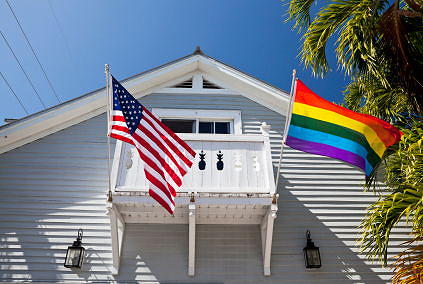
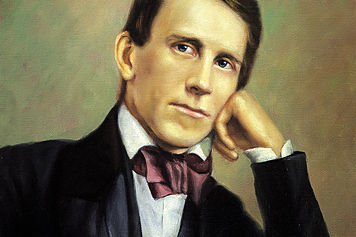
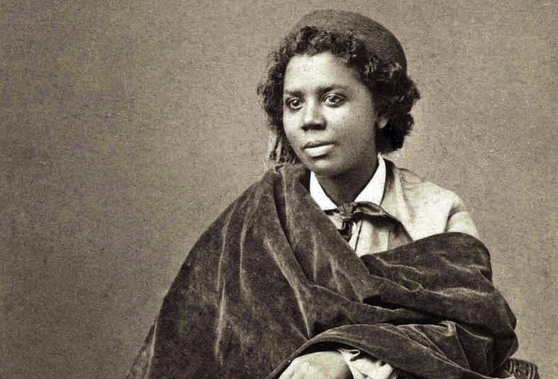

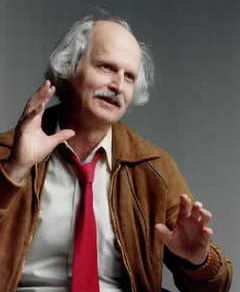
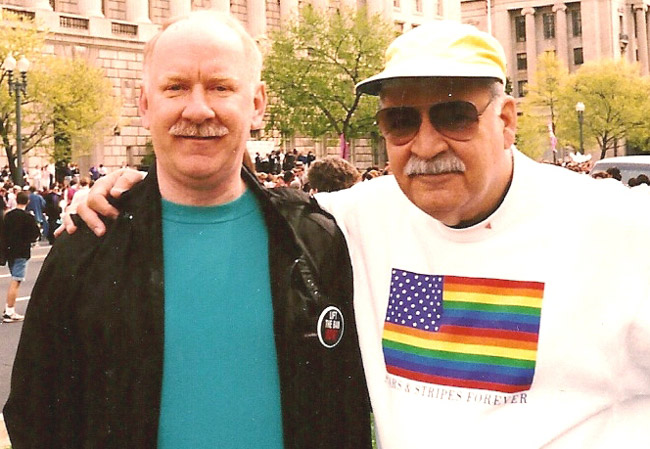
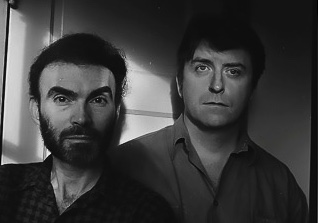
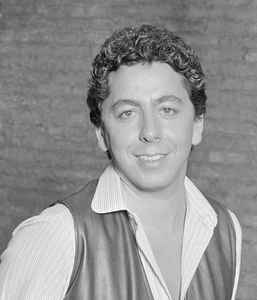
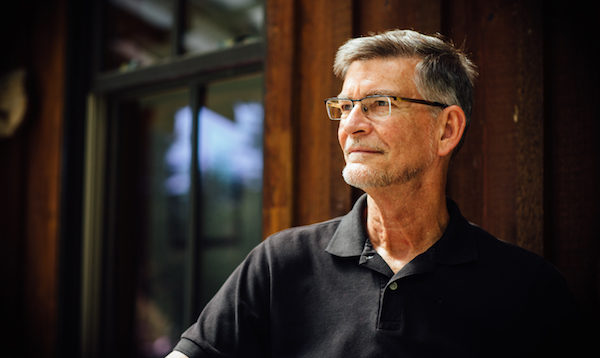
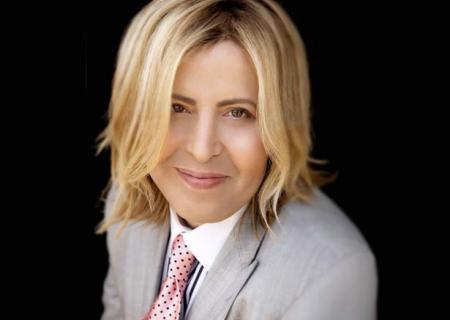
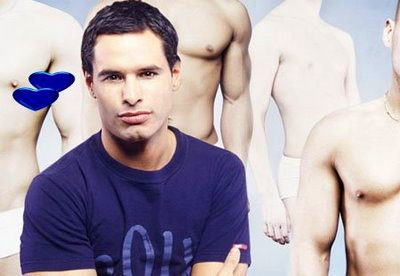
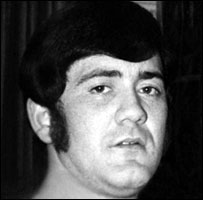

 Added 2023
Added 2023